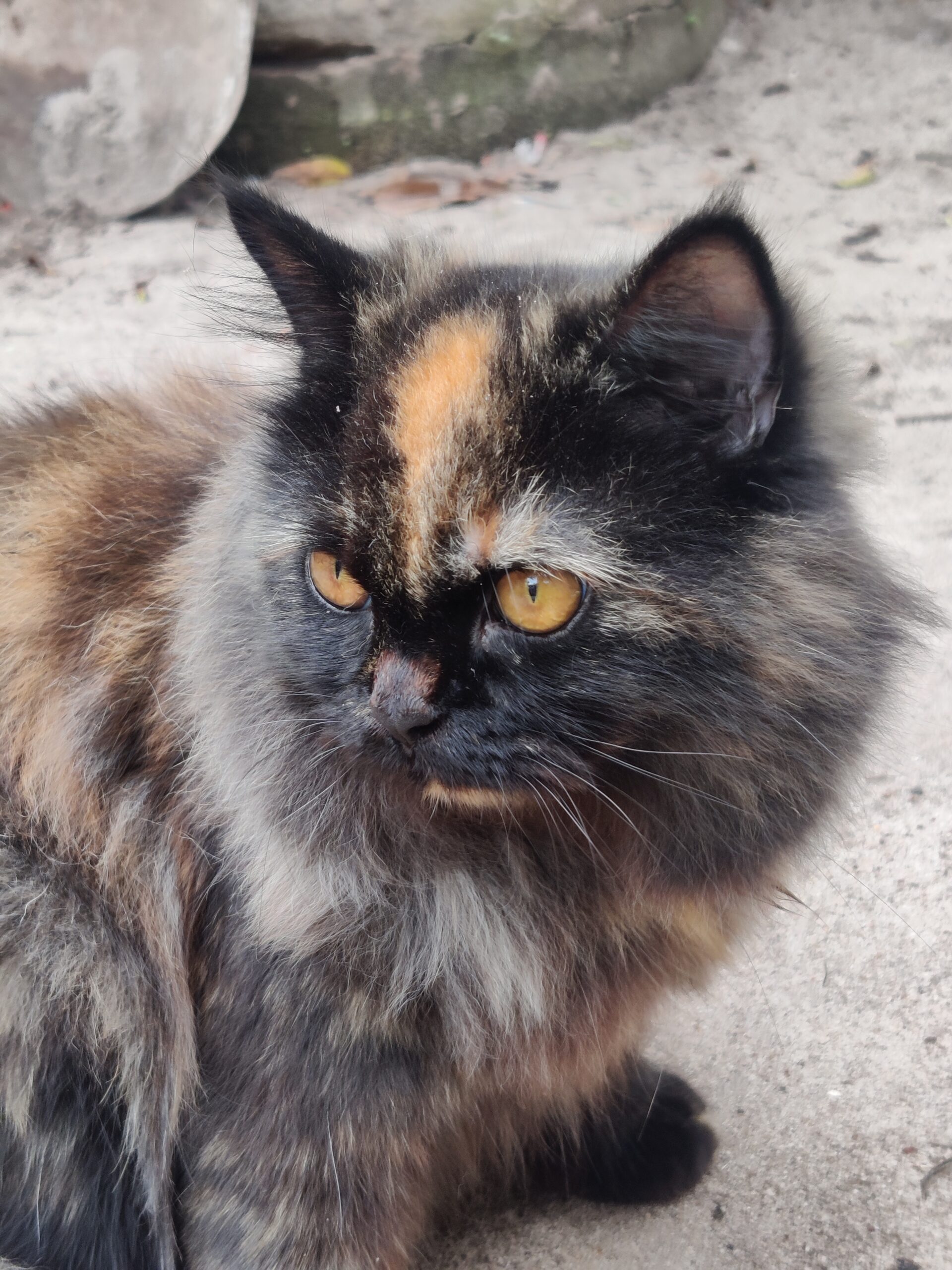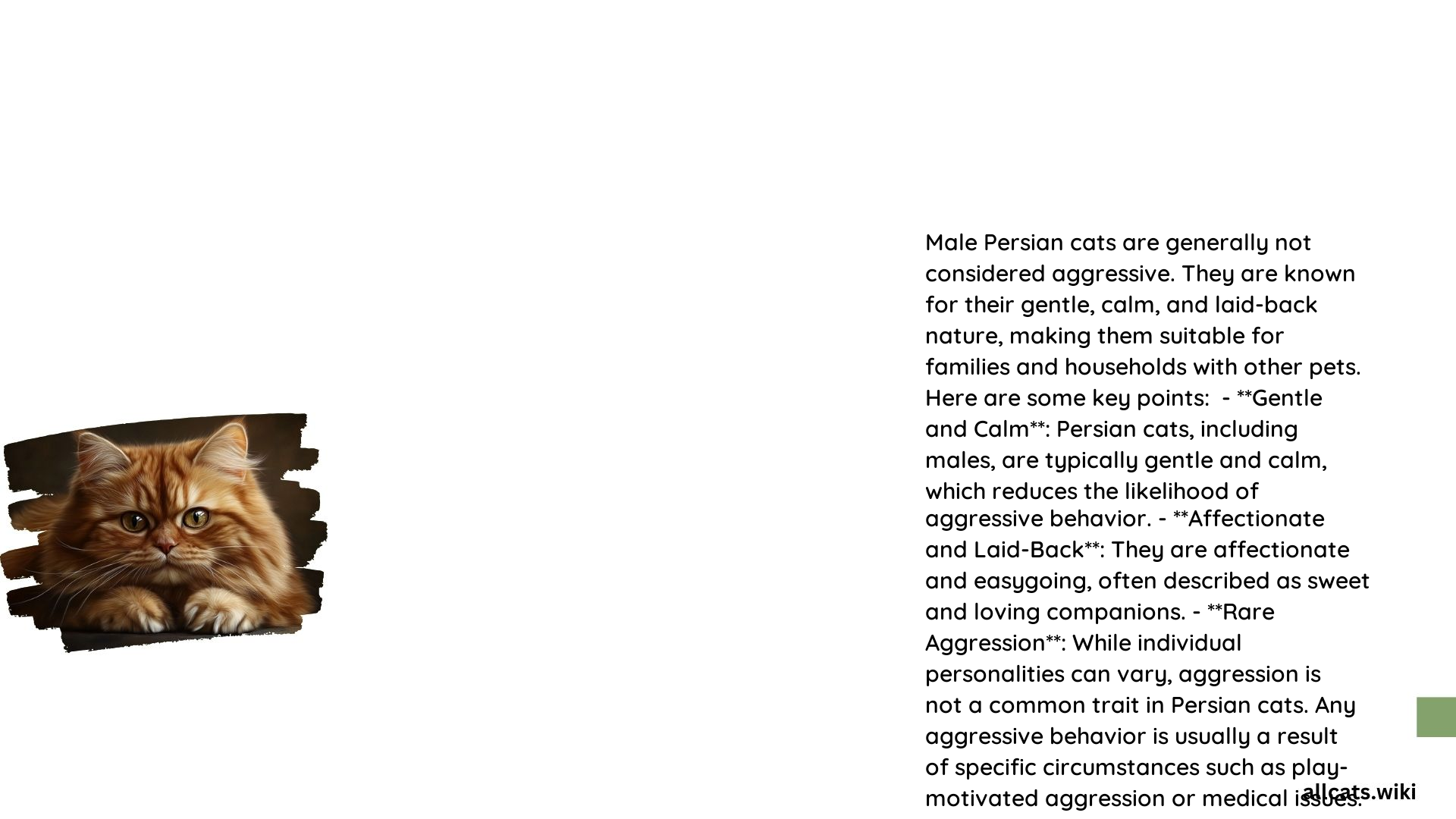Summary

Persian cats, including males, are generally known for their calm and laid-back nature. However, like any other cat breed, male Persian cats can exhibit aggressive behavior under certain conditions. Triggers for aggression in male Persian cats can include environmental factors, social interactions, and underlying health issues. Specific aggressive traits in male Persian cats may include explosive outbursts, food-related aggression, and resistance to grooming. To manage aggression in male Persian cats, it’s important to identify and address any underlying issues, use positive reinforcement training techniques, adjust the environment, and seek professional help if necessary.
What Causes Aggression in Male Persian Cats?

Environmental Factors
Changes in the household, such as introducing new pets or moving to a new home, can trigger aggression in male Persian cats. Isolation or lack of social interaction can also lead to aggressive behavior.
Social Interactions
Male Persian cats may become aggressive if they feel threatened or if their personal space is invaded. This can include situations where they are petted or handled in a way that makes them uncomfortable. Play aggression is also common, especially in younger cats.
Health Issues
Underlying health problems, such as pain or discomfort, can significantly contribute to aggressive behavior. Issues like entropion (where the eyelid rolls inward) and brachycephalic syndrome (common in flat-faced breeds like Persians) can cause discomfort and stress, leading to aggressive behavior.
What Are the Specific Aggressive Traits in Male Persian Cats?
Explosive Outbursts
Male Persian cats, especially younger ones, may exhibit explosive outbursts when they are frustrated or when something is taken away from them. This can include jumping, spitting, and biting.
Food-Related Aggression
Male Persian cats may become aggressive when trying to eat human food or when their food is taken away. This can lead to attacks on people eating at the dining table.
Grooming Issues
Male Persian cats may resist grooming, especially eye cleaning and hair brushing, which can lead to biting and scratching.
How to Manage Aggression in Male Persian Cats?
Identify and Address Underlying Issues
Consult a veterinarian to rule out any underlying health issues that could be causing the aggression, such as entropion or brachycephalic syndrome.
Behavioral Modification Techniques
- Positive Reinforcement: Reward good behavior with treats and positive reinforcement. For example, associating grooming with treats can help reduce aggression during these activities.
- Interactive Play: Engage in regular play sessions using interactive toys to help bond with the cat and reduce stress.
Environmental Adjustments
Provide a calm and stable environment. Minimize changes and ensure the cat has a quiet space where they can retreat if feeling overwhelmed. Ensure adequate social interaction and attention, but respect the cat’s boundaries and personal space.
Seek Professional Help
If aggression persists, seek help from a professional cat behaviorist or a veterinarian. They can provide personalized plans to manage the cat’s behavior and identify any underlying health issues.
